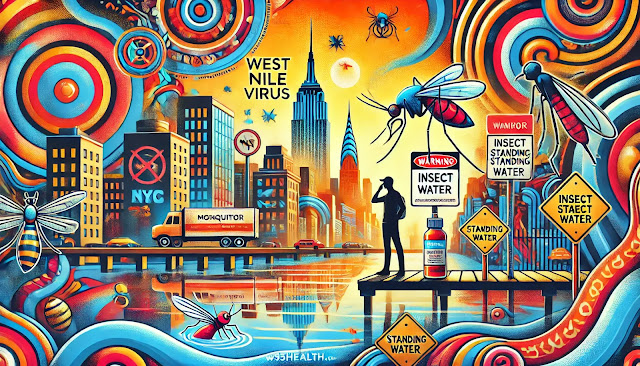Mosquitoes with West Nile Virus Confirmed in All Five NYC Boroughs
New York City health officials have confirmed that mosquitoes infected with West Nile virus have been detected across all five boroughs. This marks a significant concern for public health as the virus can cause serious illness in humans, particularly for those over 60 or with weakened immune systems.
What is West Nile Virus?
West Nile virus is primarily transmitted to humans through the bites of infected mosquitoes, specifically several species within the Culex genus, including Culex pipiens and Culex restuans. These mosquitoes become carriers after feeding on infected birds. The virus can cause a range of symptoms from mild to severe, including fever, headache, body aches, and, in extreme cases, neurological diseases like encephalitis and meningitis.
Recent Findings in NYC
The New York City Department of Health has increased mosquito surveillance and control measures following the discovery of infected mosquitoes in the city. So far, infected mosquitoes have been found in multiple surveillance traps set up throughout the boroughs. In response, the city has conducted several larviciding and adulticiding operations to control the mosquito population. These operations include applying larvicide to marshlands and other areas with standing water and spraying pesticides to kill adult mosquitoes.
Prevention Tips
To reduce the risk of West Nile virus, the NYC Health Department recommends the following precautions:
- Use Insect Repellent: Apply repellents containing DEET, picaridin, or oil of lemon eucalyptus when outdoors.
- Wear Protective Clothing: Wear long-sleeved shirts and pants, especially during dusk and dawn when mosquitoes are most active.
- Eliminate Standing Water: Remove standing water from around your home to prevent mosquitoes from breeding.
- Ensure Proper Window and Door Screens: Make sure that window and door screens are intact to keep mosquitoes out of your home.
Health Advisory
Most people infected with West Nile virus do not exhibit symptoms. However, approximately 20% may experience febrile illness, and a small percentage can develop severe neurological conditions. If you or a family member exhibit symptoms such as high fever, severe headache, or confusion, it is essential to seek medical attention immediately.





